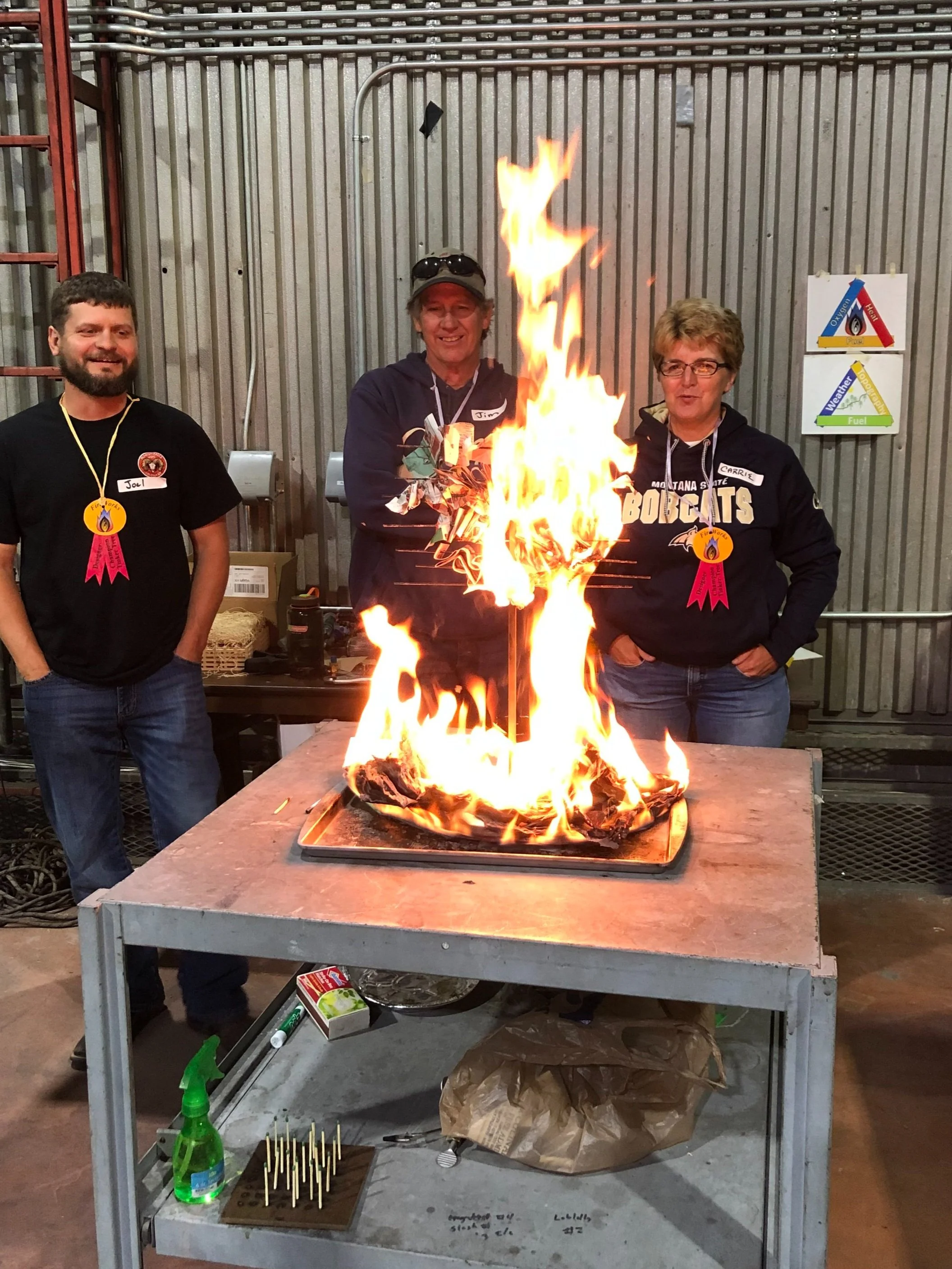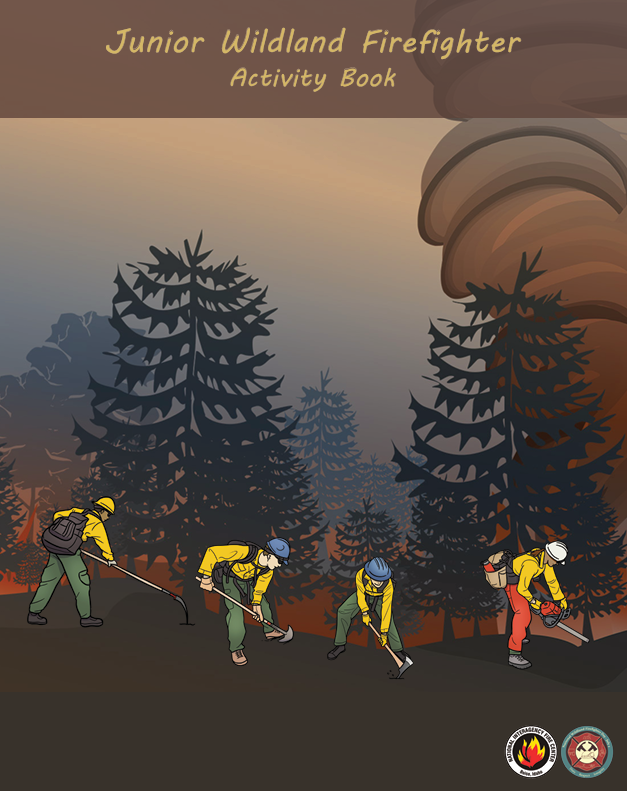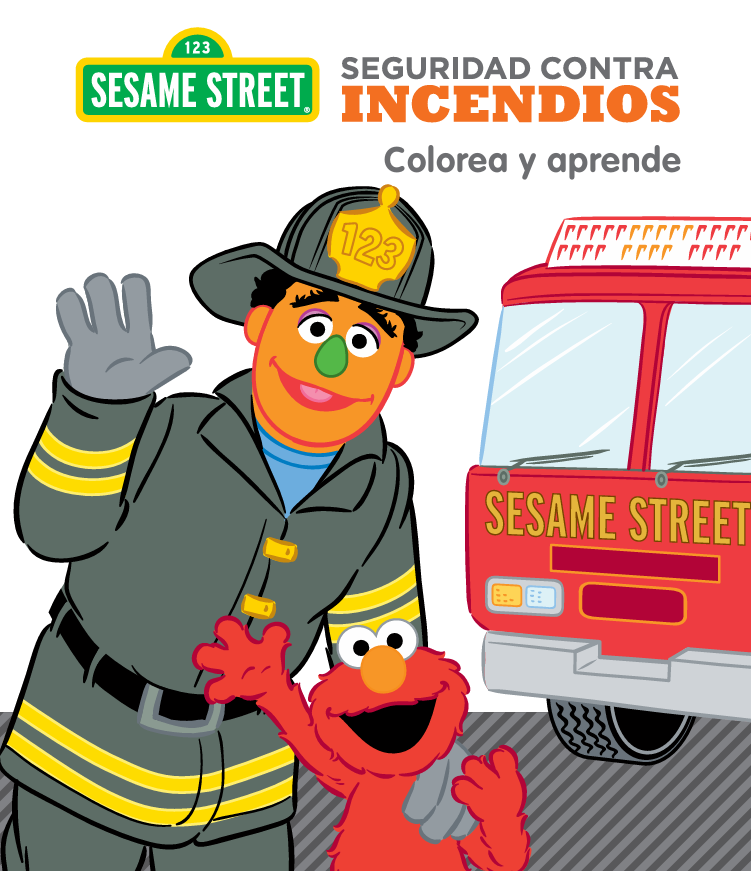Resources for Children and Educators
2019 Forest Stewards Youth Corps after completing a project
Learning about fire starts in childhood. As we grow, we come to understand that fire is dynamic, complex, and connected to many parts of our world including land management, climate, ecology, and communities. This page provides resources for kids and students to understand science, history, and how human actions affect the environment - all through the lense of fire - as well as what actions they can take to help protect their community from catastrophic wildfire.
Below you will find easy-to-use lessons, activities, and materials for teachers and students of all ages. Whether you're learning about how fire shapes ecosystems, how to prepare for wildfire, or how people manage fire on the land, you'll find helpful tools to guide learning in the classroom and beyond.
Jump to:
Fire Ecology Curriculum
Fire Ecology Learning Lab
The Fire Ecology Learning Lab (FELL) is a place based, experiential middle school science unit designed to help students understand the biotic communities of the Southwest, how these communities are adapted to wildland fire, and how the land can be thoughtfully managed. FELL also expanded this curriculum to cater to all grade levels, aiming to reach a broader audience. Individual lessons were specifically crafted for agency members and environmental educators to integrate into classrooms. All lessons are aligned with state standards and follow the 5E (Engage, Explore, Explain, Elaborate, & Evaluate) model of science education. The curriculum can be used as a whole unit by educators or as individual modules by teachers and agency members visiting classrooms.
For Agency & Informal Educators, modules are provided for classroom visits with activities grouped by age: K-2, 3-5, middle and high school.
The Teacher Portal provides the full 10 lesson curriculum for middle school students, including individual lesson plans, learning platforms, and a training video for classroom teachers
FireWorks Educational Program
FireWorks is an educational program about the science of wildland fire, designed for students in grades K-12. It provides students with interactive, hands-on materials to study wildland fire. It is highly interdisciplinary, and students learn about properties of matter, chemical and physical processes, ecosystem fluctuations and cycles, habitat and survival, and human interactions with ecosystems. The FireWorks program consists of a curriculum and a trunk of materials, including laboratory equipment, specimens, and kits of specialized materials for educators. While many of the activities can be used in any ecosystem, many are applicable to specific regions.
Educational Booklets for Children
FAC Facts: Southwestern Fire Ecology
The FAC Facts: Southwestern Ecology booklet introduces the five most common ecosystem types in New Mexico, and how fire plays a role in each. In this booklet, you will find information about the plants, animals, and histories of these places where we live, work, and play.
Other Activity Books
Junior Wildland Firefighter Activity Book - includes fire science, campfire safety, preparing a go bag, and more.
National Park Service Wildland Fire Junior Ranger Activity Book - includes interactive diagrams, fill in the blanks, and stories to introduce firefighter safety, prescribed fire, fire response, incident command, and more.
Sesame Street Wildfires: Color and Learn - includes an educator's guide for teachers, a CD of songs and stories, a family guide, a coloring and activity booklet, and a poster.
The Sesame Street Fire Safety Program curriculum for preschoolers is available in both English and Spanish.
Trauma-Informed Toolkit
For tools on teaching about potentially traumatizing topics including fire, see the Trauma-Informed Toolkit - A Resource for Educators. This toolkit supports and complements educators’ knowledge and skillset in implementing trauma-informed approaches in educational settings.
Smokey Bear Wildfire Prevention Materials
Since 1944, the Smokey Bear campaign has been working to encourage all Americans to prevent wildfires. After 80 years, Smokey has continued to spread messages around wildfire prevention. Created by the U.S. Forest Service, the National Association of State Foresters, and the Ad Council, Smokey Bear materials have been made available for both educators and children.
Smokey for Kids offer activities, games, and fun facts that teach children about preventing wildfires and protecting the forest. Smokey for Educators provides resources to teach kids grades K-8 a variety of skills and subjects.















